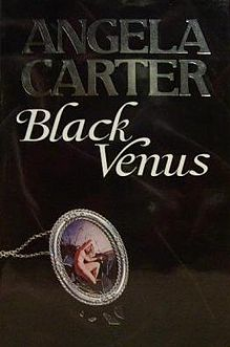
Carter's work, 'Black Venus' is a prime example of an author incorporating another author within their work. This example in particular, is incredibly striking for numerous reasons. In typical Carter fashion, reminiscent of her other works such as 'The Bloody Chamber,' we see subversions of pre-established ideas, alongside a dense narrative that constantly forces the reader to question the delegation of power between characters; 'Carter calls attention to familiar historical stories by completely distorting them; therefore, emphasizing the idea that history and meaning are subjective rather than objective realities.' In this story, Carter weaves in the story of the nineteenth century poet Baudelaire, and his relationship with the mysterious Jeanne Duval.
Immediately, we as readers get a sense of Carter's belief in feminism, due to her portrayal of Baudelaire. Throughout the first section, before the change in narrative, Carter only seems to only refer to Baudelaire in the context of pronouns; 'he,' and 'his' for example. This is powerful enough in itself, but is amplified by the fact that Carter does this when she is effectively in charge of the narration, but equally when she is using the voice of Jeanne Duval; that even Jeanne does not think of him in terms of his name. This very much reduces Baudelaire to more of a presence than an actual physical being. No details are yet revealed about him, which means that as the audience, we are purely limited to his gender being the description. Perhaps this is Carters way of bringing the female character to the forefront, in contrast to so many novels. Yet, Carter pushes further still, later referring to him as merely 'the poet.' By limiting him to being only his profession, she has effectively diminished his gender altogether, as though unimportant. However, this could alternatively be seen as an equalisiation of both Baudelaire and Duval; without the classification of gender, they are unequivocally equal. Already, it has become clear, that Carter's presentation is in stark contrast to Hopkinson's 'The Salt Roads,' also recounting the story of the two lovers, as from the start, Hopkinson's Jeanne constantly utters the name 'Charles.'
Continuing to perplex the reader in regards to which character possesses any dominance, Carter uses the semantic theme of animals. Previously, we are already unsure as to whether to view Jeanne purely as a victim, introspectively questioning her morality at the actions she performed to 'earn; her keep; ' she wondered what the distinction was between dancing naked in front of one man who paid, and dancing naked in front of a group of men who paid,' or, whether to view her as someone who on the surface seemed to have very little power, but underneath, is revealed to have more control than first perceived. I think that Jeanne calling Baudelaire a 'sucker' with him not hearing certainly shows a different side to Jeanne, suggesting a crueller, more dominant tone. This is all the more powerful due to Carter having incorporated an anachronistic colloquialism that we would recognise today, but would not fit within the nineteenth century.
Image: https://en.wikipedia.org/wiki/Black_Venus_(short_story_collection)

0 Comment:
Be the first one to comment on this article.